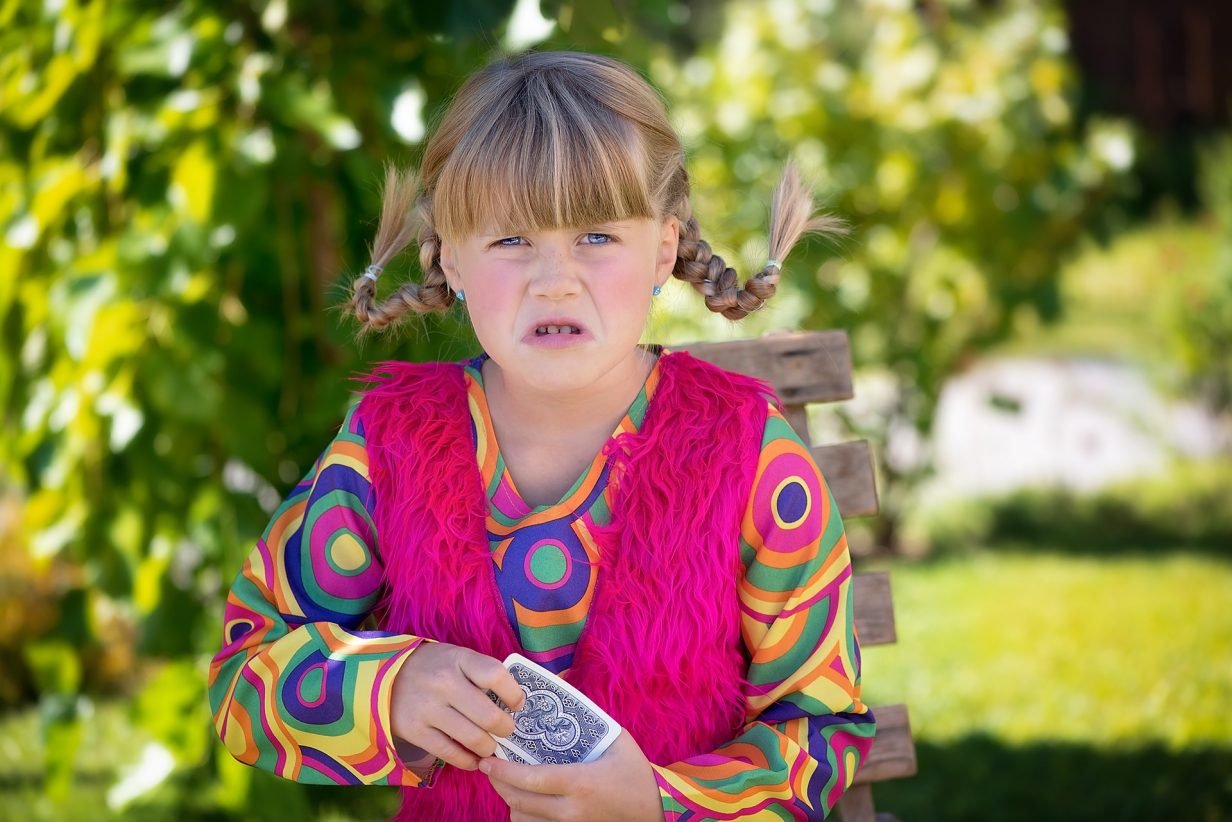How not to raise a selfish child in a one-child family?

Despite the financial support for large families provided by the government, a big proportion of adults prefer to have only one child. They motivate this decision with an unfavorable financial situation and a lack of time to raise two or more children. Nevertheless, parents may also encounter issues when raising one child. You will find out more about them in this article.
Contents:
- The advantages and disadvantages of being the only child in the family
- The particularities of raising the only child
- What do to if the child is growing up into a selfish adult?
- When a second child becomes part of the family
- Tips for Parents
The advantages and disadvantages of being the only child in the family

Prostock-studio/Shutterstock.com
Only children often regret being on their own in the family and claim that they did not have a playmate. On the other hand, the ones who grew up with siblings, mention a deficiency in parental attention and constant conflicts between the children.
We have tried to analyze the advantages and disadvantages of raising the only child in the family.
Advantages:
- The child receives all the love, care, and attention from their parents and their relatives.
- Apart from spiritual wealth, the only child in the family may also rely on material wealth. They do not have to share their toys, clothes, or school supplies with their brothers or sisters.
- Parents devote much more money and energy to the upbringing and education of their only child. Such children are signed up for all sorts of extracurricular activities, art schools, sports clubs. Therefore, it often occurs that the only children in the family turn out to be more intellectually advanced than their peers that have got siblings.
Disadvantages:
- The only child may become the «idol» of the family, thus turning into a mini dictator whose whims are fulfilled straight away by their parents.
- An overly caring approach of the parents leads to the development of anxiety and low esteem in children.
- The only child often becomes the victim of the unfulfilled expectations of their parents.
- Too many expectations are often placed on an only child. Hence, they start feeling the pressure to be the best at everything and not to let their parents down; they develop the so-called «perfectionist syndrome».
- As the child starts interacting with their peers, they realize that they are no longer the smartest and most wonderful. The class supervisor or the teacher does not rush to the child in the blink of an eye, and other children do not always want to be friends with them. As a result of this, many children start experiencing difficulties in adapting and forming friendships. Such a child often becomes an outcast.
The point of view of a professional

Prostock-studio/Shutterstock.com
Teachers, psychologists, and psychotherapists all agree that the number of children in the family does not define the personal well-being of each child. What defines it, is conscious and mature parenthood. Only in a family with wise and understanding parents, there will not be jealousy and rivalry reigning in it, and an only child would not grow into an egotistical individual. In a family where parents love their child, but do not place them on a «pedestal». Where the child’s needs are respected, but parents do not rush to respond to whims and tantrums right away. Where parents care about their babies but allow them to have «first-hand» experiences and accumulate knowledge.
Are you very worried about your only child? Stop overprotecting them and allow the child to develop harmoniously and freely while knowing that they are safe. Download the «Findmykids» app from the AppStore and GooglePlay.
The particularities of raising the only child
When the only child is being raised in the family, the parents may come across the following issues:
The son or the daughter spends a lot of time on their own or with their gadgets
Only children struggle to make new friends because of their lack of experience in communicating with peers. Especially if the child is an introvert. They may start experiencing problems with adaptability in the environment of a school or a kindergarten. Therefore, it is important for parents not to limit their child’s communication with their friends, to invite them to their home more often, and to visit friends who have young children.
The child is highly psychologically dependent on their parents
Only children often develop a very tight emotional bond with their parents. This is even more apparent in single-parent families where the mother devotes all of her attention to raising the child after she is left without her partner. Consequently, when the child grows up, they may find it hard to part with their family and build their own.
The child gets used to being the center of attention

Prostock-studio/Shutterstock.com
Whilst benefiting from the love and attention of their parents, grandparents, and numerous relatives, the child begins to feel like the center of the universe in their family. And when they find themselves with their peers, they find it hard to accept that they will no longer be constantly praised for their significance. Moreover, it suddenly turns out that there are children who are much smarter, stronger, and more capable than them.
The child only takes into account their feelings and does not care about the feelings of their parents.
The family plays an important role in the development of the child’s selfishness. Parenting according to having an «idol» in the family, leads to the development of highly consumerist behavior in a child where they consider that everyone «owes them».
Here is an example of how parenting mistakes may lead to negative consequences.
What do to if the child is growing up into a selfish adult?

Prostock-studio/Shutterstock.com
Firstly, let’s define the term «selfish»
Selfishness is the type of behavior aimed exclusively at personal well-being, which is often fulfilled to the detriment of others. It is the manifestation of the ego of a person, their own «I» that dictates to them what needs to be done to satisfy their own needs in every possible way.
The foundation of selfishness in a child is laid out in their mother’s womb. As a newborn, the baby requires increased attention and demands the mother to satisfy all of their needs in terms of nutrition, safety, communication, and all other key aspects. Hence, egoism becomes the basis for the survival of a little human being.
Therefore, one should distinguish between healthy and unhealthy egoism. The former is aimed at the development of personality, ensuring personal safety, and gaining knowledge of the surroundings. The latter implies the development of a consumerist attitude towards others and the lack of ability to see the desires and needs of other people.
Selfishness in children stems from a mistake made by adults when raising their adults. If a child grows up selfish, this means that their parents (perhaps unconsciously) assigned them such a behavioral model.
Common mistakes of parents of one child – how to avoid them?

Prostock-studio/Shutterstock.com
Manifestations of egoism in children and parental errors can be different. Here are some of them.
- «My husband and I tried to never overburden our daughter with household chores. We thought that when she grew up, she would be willing to help us on her own. However, she is now 15 years old, and she cannot even dust the surfaces in her room. She expects that I will do it for her».
The first and only child quickly gets used to the fact that their parents do everything on their behalf. This goes from tying shoelaces to organizing their school backpack. As a result, when parents decide that their son or daughter is old enough to deal with those tasks, the child finds themselves in a state of shock and misunderstanding. They genuinely do not understand why they should be doing something that their parents were previously doing for them daily.
Introduce your child to household chores starting from a young child. A 3-year-old is already capable of putting their toys away and of dressing themselves. Gradually increase the areas of your child’s responsibilities. Make sure that every task has been followed through until the end and that you have recognized that those tasks have been completed.
- «My son is 1,5 years old. He throws tantrums quite often, asks me to hold him all the time, and does not want to fall asleep alone in his bed. I am afraid that when he grows up, he becomes an egoist if I will be fulfilling all of his requests».
The manifestations of «healthy» selfishness before the age of 3 years old are perfectly normal. With its help, the child interacts with the outside world and obtains a corresponding reaction. The child may throw tantrums if they feel discomfort if they experience pain, or if they lack human interaction. Also, the child may sense the tense atmosphere in the family, and react to it accordingly.

Prostock-studio/Shutterstock.com
- «I heard by accident that my 5-year-old daughter was showing off in front of her girlfriends at kindergarten. She was saying that she is the best at drawing, that she can climb the highest hill and that she will have the prettiest dress at the school play. May this be considered as egotistical behavior?»
At preschool age, children are often eager to demonstrate their talents and abilities as well as to earn the praise and admiration of others. Parents encourage them by telling everyone what a wonderful child they have, and how the child achieves everything because of their intelligence. However, moms and dads often fail to assess the real achievements of their children adequately. This is because, in their eyes, their child is always perceived as a better and more capable individual than other children. As a result, the child develops excessive self-esteem and a lack of self-criticism.
Try to display interest not only in the successes of your child but to also ask them about their friends, acquaintances, and classmates – what they’ve achieved and what their successes are. Express your compassion for your child’s friend who has failed a test, and joy for a classmate who has won first place at a competition.
It is unnecessary to be praising your child for absolutely everything, although a lot of parents consider this to be «the way to go». Children need to develop the skill of critical thinking towards their actions and the actions of others.
- «My own childhood has not been full of joy: my father had a drinking problem and my mother was struggling to make ends meet. Tasty food or expensive toys was not something I had. Therefore, I made sure that my son had everything, I was buying him everything he asked for. At 5 years of age, he already has his tablet, a small racing car, and only branded clothes. We put him into an expensive private school, and this is when it all started: «Dad, I want to go to Paris for the weekend like Tom», «Dad, I want to have a big house with a swimming pool like John». Without any doubt, I give a lot to my son, however, my financial abilities are not endless. But my son gets upset and starts screaming that he is not being treated well in his family and saying that we don’t love them. Have I really raised a self-centered child? All I wanted was the best for him, I wanted him to have everything he needs…»
Departing from good intentions, parents often contribute to the development of a child’s egoistic manifestations, which happens when the child receives everything they ask for, right away. Having grown up a little, such children turn into skilled manipulators and «blackmailers». Their appetites grow, and with them, grows their confidence that everyone around them is there to satisfy their needs.
If parents do not change their educational tactics, they are risking raising a greedy, insensitive individual focused on non-stop consumption and always putting their benefit first.
When a second child becomes part of the family

Prostock-studio/Shutterstock.com
A lot of parents sooner or later decide to have a second child.
What needs to be taken into account:
- set your priorities correctly. It doesn’t matter how much time goes by between the birth of the first and second child. The most important thing is to be prepared to simultaneously give your care and attention to two children at once. However, doctors still recommend that a period of 1,5 to 2 years is maintained between pregnancies for the woman’s body to recover and prepare to give life again;
- to avoid the manifestations of jealousy and negativity in your child, prepare them for the birth of their brother or daughter in advance. Let them participate in the choice of toys, furniture, and other necessities for the newborn;
- talk to your older child about the basic rules of behavior with younger children. Explain to them that at first, their little brother or sister will not walk or talk, they will only be lying in their bed. Later on, they will learn to crawl and make sounds, and then will start walking, which will enable them to play and go on walks with their older sibling;
- if the first child is willing to help with the newborn, do not turn their help down. But do not make a nanny out of them either. The older child, just like the younger, has the right to their childhood;
- immediately shut down any manifestations of jealousy. Always tell your children that mom and dad love them in equal proportions;
- according to Caroll Crill Russell, a senior research specialist in children’s behavior, both the older child and the parents will need to learn to be patient, as the child will need 3 to 6 months to adjust to having a younger sibling. The researcher also highlights the fact that spending some one-on-one time between the parent and the older child is paramount.
Tips for Parents

Prostock-studio/Shutterstock.com
- Your child is an individual with capabilities and talents. Do not try to «mold» your child into a reflection of yourself or to fulfill your unachieved dreams of becoming an actor, an artist, a musician, etc – through your child. Allow your child to choose their pathway.
- «Do not make yourself an idol» – states Exodus 20: 4-6 commandment of the Bible. Do not do it even if this idol is your child – your flesh and blood.
- Do not try to solve all the problems and hardships on behalf of your child. This includes dealing with the «domino» effect: homework not done results in getting an E grade, not preparing the school bag in advance – forgetting the textbook, not setting the alarm clock – to arriving late to school. The child needs to understand that all of their actions or inactivity will have certain consequences, for which they will be held responsible.
- Teach your child to cope with their disappointments and failures, as there will be quite a few of those in life. They may feel sad after having failed a test or lost in a competition, but then they will try harder to succeed next time.
- Develop your child’s autonomy. Assign some household chores to them, for example, taking care of domestic animals or plants.
- Encourage your child’s communication with peers. Teach them how to meet people and make friends.
- Foster the development of the emotional intellect of your child. Talk with them about their feelings, emotions, and worries.
- Assess the capabilities of the child adequately and realistically. Do not over-praise them, but do not underestimate their successes either.
- If you cannot cope with the manifestations of egoism in a child on your own, you should seek the assistance of a psychologist who will provide you with some competent advice on raising a child.
Many reasons influence the parents’ decision to have only one child. However, this child has all the chances of growing up into a well-mannered, generous, and empathetic person. After all, what really matters for the correct development of the child, is not the presence of a brother or a sister, but rather a calm and friendly atmosphere within the family, as well as wise and loving parents.

Prostock-studio/Shutterstock.com
Проверьте электронный ящик




















